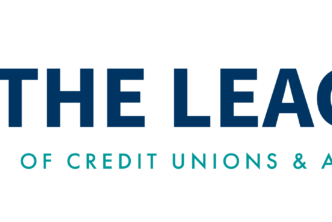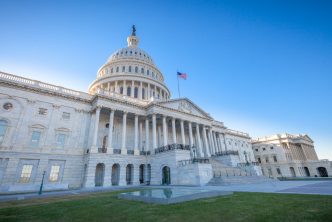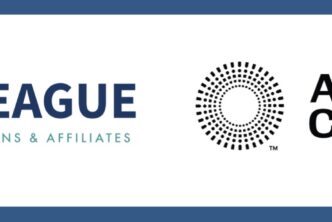A bipartisan group of Senate Banking Committee members have released a bill that could offer credit union regulatory relief.
This bill includes credit union-specific provisions that provide meaningful regulatory relief, a sign that policymakers are paying close attention to the needs of credit union members. CUNA thanks Sen. Crapo and his colleagues for working across party lines to advance regulatory relief legislation, and we look forward to continuing to work closely with them as the bill moves through the legislative process.
The credit union provision would grant credit unions parity with banks by classifying residential loans on one-to-four non-owner occupied units as real estate loans. Currently these loans, when made by credit unions, are classified as business loans; similar loans made by banks are considered real estate loans. Bipartisan standalone legislation containing this language has already been introduced in both the House and Senate.
Below you will find a list of provisions that we support currently included in the package. CUNA has been very engaged with senators on both sides of the aisle to ensure that this provision was included and made it known it was needed to garner credit union support. We are continuing our review of the legislation. While this is just the first step in the process, we look forward to working with the Committee to make certain this legislation goes to the floor and eventually is signed into law.
TITLE I IMPROVING CONSUMER ACCESS TO MORTGAGE CREDIT
Section 101. Minimum Standards for Residential Mortgage Loans.
This section provides that certain mortgage loans that are originated and retained in portfolio by an insured depository institution or an insured credit union with less than $10 billion in total consolidated assets will be deemed qualified mortgages under the Truth in Lending Act (TILA) while maintaining consumer protections.
Section 102. Safeguarding Access to Habitat for Habitat for Humanity Homes.
This section provides that appraisal services donated voluntarily by a fee appraiser to an organization eligible to receive tax-deductible charitable contributions will be considered “customary and reasonable” under TILA.
Section 103. Access to Affordable Mortgages.
This section provides a tailored exemption from appraisal requirements under the Financial Institutions Reform, Recovery, and Enforcement Act of 1989 for certain mortgage loans with a balance of less than $400,000 if the originator is unable to find a State certified or State licensed appraiser to perform an appraisal after a good faith effort to do so.
Section 104. Home Mortgage Disclosure Act Adjustment and Study.
This section provides regulatory relief to small depository institutions that have originated less than 500 closed-end mortgage loans or less than 500 open-end lines of credit in each of the two preceding calendar years by exempting them from certain disclosure requirements under the Home Mortgage Disclosure Act. It also directs the Comptroller General to conduct a study examining the impact on the amount of data available.
Section 105. Credit Union Residential Loans.
This section provides that a 1- to 4-family dwelling that is not the primary residence of a member will not be considered a member business loan under the Federal Credit Union Act.
Section 106. Eliminating Barriers to Jobs for Loan Originators.
This section provides that an individual will be deemed to have temporary authority to act as a loan originator for 120 days under the S.A.F.E. Mortgage Licensing Act of 2008 if such person is (1) a registered loan originator who becomes employed by a state-licensed mortgage company or (2) a state-licensed loan originator who becomes employed by a state-licensed mortgage company in a different state.
Section 107. Protecting Access to Manufactured Homes.
This section amends TILA to exclude from the definition of “mortgage originator” an employee of a retailer of manufactured or modular homes who does not receive compensation or gain for taking residential mortgage loan applications while maintaining consumer protections.
Section 109. Escrow Requirements Relating to Certain Consumer Credit Transactions.
This section provides an exemption from escrow requirements under TILA for certain loans made by an insured depository institution or an insured credit union.
Section 110. No Wait for Lower Mortgage Rates.
This section (1) removes the three-day wait period required for the combined TILA/RESPA mortgage disclosure if a creditor extends to a consumer a second offer of credit with a lower annual percentage rate, and (2) expresses the sense of Congress that the CFPB should endeavor to provide clearer, authoritative guidance with respect to certain issues.
TITLE III PROTECTIONS FOR VETERANS, CONSUMERS, AND HOMEOWNER
Section 302. Protecting Veterans’ Credit.
This section amends the Fair Credit Reporting Act to exclude from consumer report information: (1) certain medical debt incurred by a veteran if the hospital care or medical services relating to the debt predates the credit report by less than one year; and (2) a fully paid or settled veteran’s medical debt that had been characterized as delinquent, charged off, or in collection. It also establishes a dispute process for consumer reporting agencies with respect to such veterans’ medical debt.
Section 303. Aiding Senior Protection.
This section extends protections to certain individuals who, in good faith and with reasonable care, disclose the suspected exploitation of a senior citizen to a regulatory or law-enforcement agency.
TITLE V STUDIES
Section 501. Treasury Report on Risks of Cyber Threats.
This section requires the Treasury Department to submit a report to Congress on the risks of cyber threats to financial institutions and the U.S. capital markets.
Read the full Washington Wire here.





